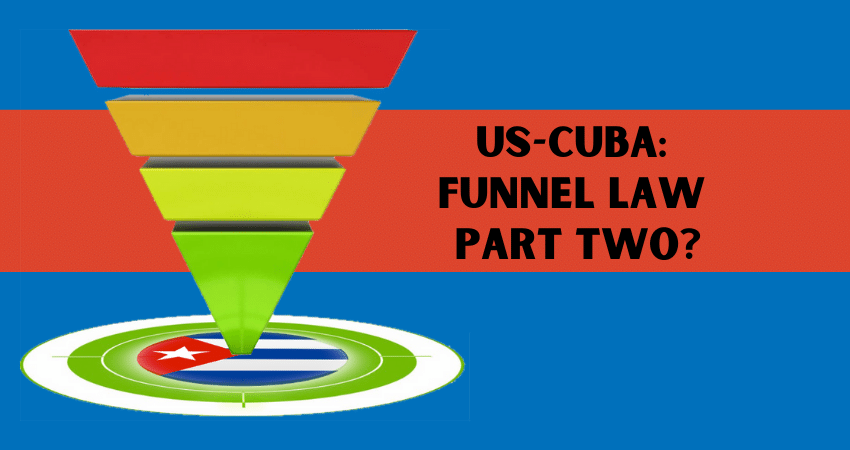Joe Biden, the vice president of Barack Obama during what was known as the “thaw” with Cuba, will be inaugurated this week as the 46th president of the United States. That fact raises questions.
In his memoir “The World as It Is”, Ben Rhodes, the negotiator sent by President Obama to the secret talks that led to the announcement of the thaw on December 17th 2014, recalls that during the talks the Cuban government made several promises: to undertake political and economic reforms (mostly unspecified), to open the doors to US business, as well as to free 50 political prisoners and expand Cubans’ access to the Internet.
The former presidential aide points out that later, when the Obama administration put a series of US initiatives on the table, the Cuban government responded with characteristic evasive strategies.
They were terribly slow in issuing licenses to US firms interested in doing business in Cuba; they did not open fluent channels for trade with the Cuban private sector, and they did not resolve pending claims about properties confiscated from US citizens.
In fact, of the offer structured by Obama through six rounds of generous amendments to the Cuban Assets Control Regulations (CACR) the government of Raúl Castro accepted only what was most convenient for them.
This was analyzed in detail by the United States-Cuba Trade and Economic Council (USCTEC) in an article dated August 2016. This entity headed by businessman John Kavulich then observed how the Cuban government welcomed, or corresponded, only to Obama’s modifications that paid the most dividends for them, especially for the military.
Cuban blessings concentrated in the sphere of the hard currency economy, that is dominated on the island by the military holding Grupo de Administración Empresarial S.A. (GAESA), led by Raúl Castro’s former son-in-law Luis Alberto Rodríguez López-Calleja, a general of the Armed Forces recently sanctioned by the Trump administration.
Thus, Havana welcomed the elimination by Obama of all limits on remittances, which are exchanged at arbitrary rates and never delivered in dollars to their recipients, while a large part of them end up in the retail Currency Collection Stores under the control of GAESA, to which practically all Cubans have to resort to satisfy basic needs. Billions of dollars a year in profits that also went to the Cuban military.
The measures ordered by the White House to increase and facilitate authorized travel by Americans were also well received. According to the USCTEC Americans leave the highest profit margin, and became the second largest travelers group to the island after Canada. But Havana only allowed airlines and hotel firms to maintain a physical and operational presence in Cuba.
With the military controlling tourism in Cuba, Havana gave the go-ahead for the resumption of scheduled commercial flights and cruises; enabled transactions on the island with US-issued credit cards (though the Stonegate and Popular banks), and allowed US companies (Priceline and Airbnb) to make accommodation reservations in Cuba, or manage hotels in the country, including of those owned by GAESA (Starwood). It also signed roaming agreements to facilitate communications from Cuba for customers of the main US telephone companies (Sprint, Verizon, T-Mobile, AT&T).
The same did not happen with the White House measures that sought to strengthen trade and investment or directly benefit the Cuban people and the private sector.
Havana did not authorize US companies to sell directly to private entrepreneurs in Cuba, nor did they authorize the latter to export their productions to the neighboring country or receive loans from US companies.
It did not agree to allow US internet and telecommunications companies to lay a fiber optic cable and improve the infrastructure of the sector down there. The true expansion of internet services happened later in 2018 under Donald Trump.
Despite the fact that the opening motivated some 500 American entrepreneurs to travel and explore businesses on the island, the only American investment proposal that the Castro government approved in principle was that of the company Cleber LLC of Alabama to manufacture and sell simple tractors to the Cuban farmers, but it never received permission to settle in the Mariel Special Development Zone.
The promised political and economic reforms or advances in the human rights situation never materialized either. In fact, the repression was sustained and even increased.
As a culmination of Obama’s outreaching policy, American diplomats, always under close surveillance by Castro’s secret services, suffered prolonged, repeated and devastating attacks on their health since the end of the Obama presidency through the so-called acoustic attacks. The Cuban government has never even acknowledged that they took place despite the scientific investigations proving their existence.
In short, the Castro regime applied the Funnel Law to Obama’s offers, wide for them, narrow for everything that benefited the United States or the Cuban people. The new US administration should learn some lessons from what happened during the “thaw” years.
By Rolando Cartaya

